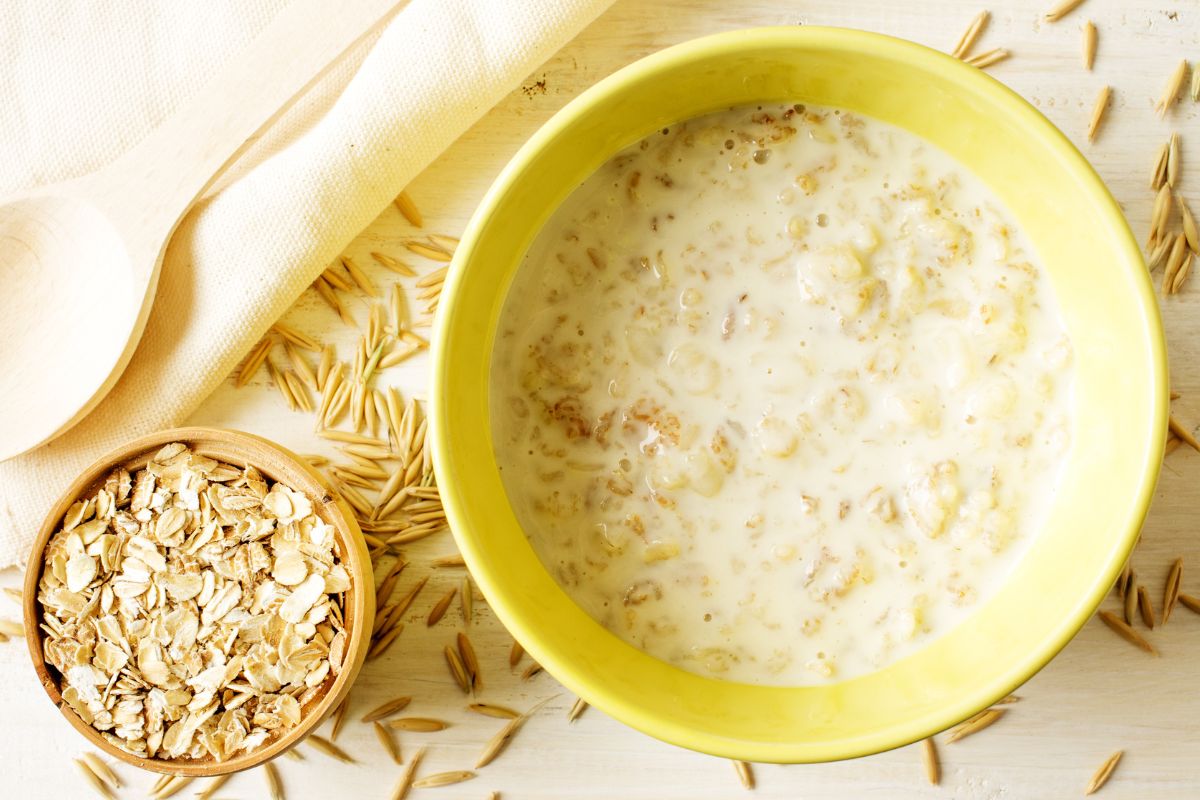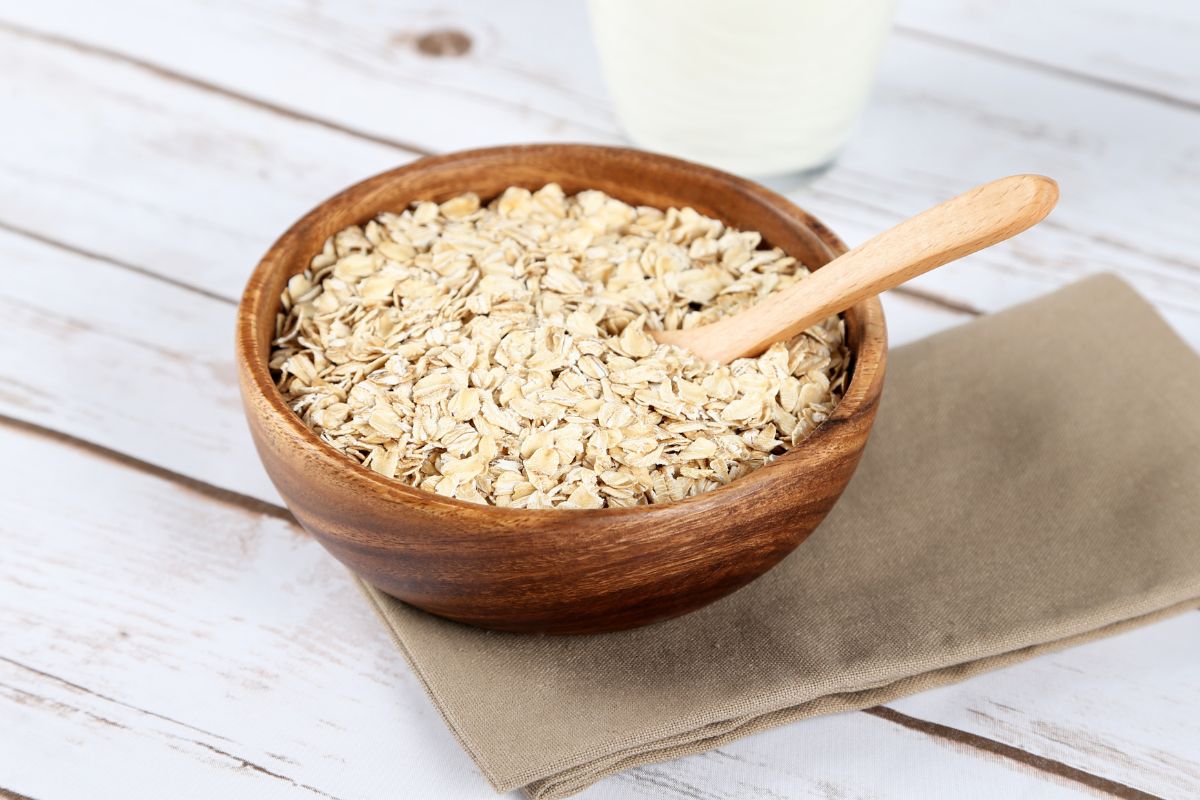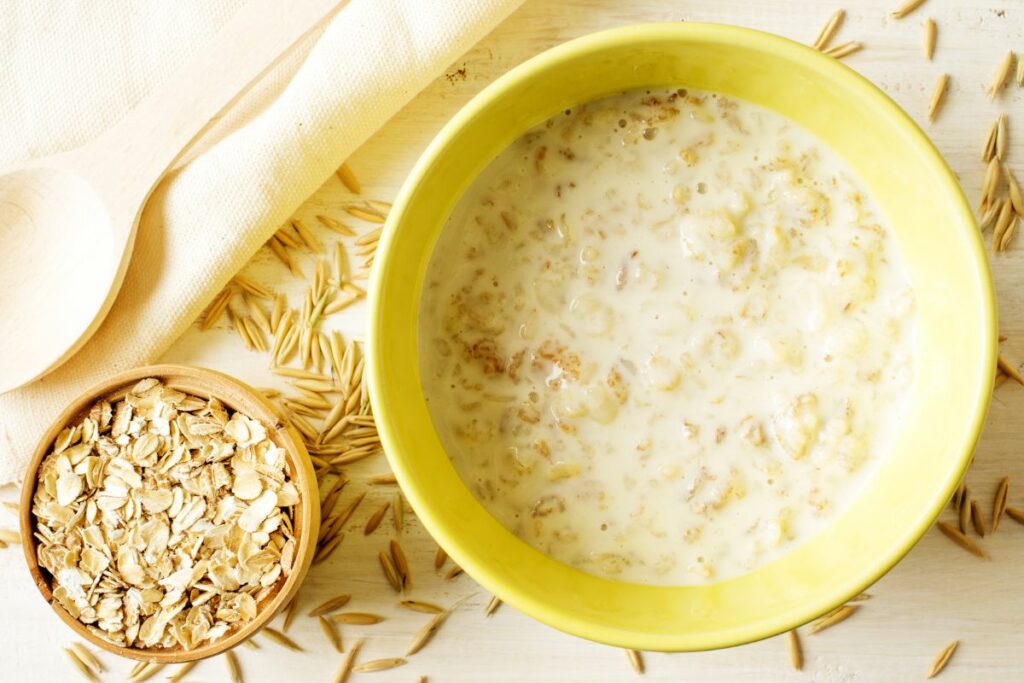Learn how much potassium is in oatmeal, and how it can help you maintain a healthy lifestyle.
Potassium is an essential mineral that is used to fuel and keep much of our body healthy and working properly.

While many people can digest potassium perfectly well, for some with metabolism issues, potassium should be avoided.
When this is the case, you need to be aware of the quantity of potassium that is contained in the meals, especially when a meal is labeled as “healthy”, as this typically means that it has a high potassium content.
Today, we will be looking at oatmeal to see what the potassium levels are and whether this is a healthy food.
You could find that starting your day with a warm, flavorful bowl of oatmeal in the morning is just what you need to get the day off to a good start (Find out Is Oatmeal Keto? here).
Even though it is not a meal that is exceptionally high in potassium, it nevertheless provides a sufficient amount of the mineral for the body to use.
Oats may be prepared in several different ways, each of which can be used to increase the total amount of potassium that the grain contains.
No matter how you choose to make it, oatmeal has the potential to be a source of a broad variety of other critical nutrients, including fiber, protein, B-vitamins, and iron.
How Much Potassium Do I Need Daily?
The typical adult needs to consume 4,700 milligrams (mg) of potassium daily to keep their overall health in good condition. If you are a breastfeeding mother, you might need to go up to 5100mgs.
Although severe nutritional deficiencies are not as widespread in the United States as they are in other parts of the world, a significant portion of the population continues to have a poor diet.
Even though oatmeal won’t meet a significant portion of your daily potassium requirements, it can help you come closer to meeting them, especially if you combine it with other potassium-rich foods when you serve it or prepare it.
This is especially true if you combine it with bananas, which are also high in potassium.
How Much Potassium Is In Oatmeal?
One cup of oats that has been boiled in water contains approximately 143 milligrams of potassium. Because of this, it is considered to be a food that contains a moderately low potassium content.
Because oatmeal does not contain a lot of potassium, individuals who follow a diet that is low in potassium do not run the danger of developing any health problems as a result of consuming the food.
Is Oatmeal Healthy?
Oats are consistently ranked as one of the grains with the highest nutritious density found all over the world.
They are a fantastic source of the minerals, nutrients, and vitamins that are important for preserving your health and keeping you in good physical condition.

In addition to this, it contains a high fiber content, which helps you feel full for a longer period.
You may make a breakfast that is high in potassium and provides other necessary nutrients by combining low-fat milk, oats, and either fresh or dried fruit.
The dried fruit can be used as a substitute for fresh fruit. Sprinkle some cinnamon on top of your meal, and then add some honey or pure maple syrup to it if you want it to have more of a sweet flavor.
In addition to being a very healthy dietary option, oats are also devoid of the gluten protein found in other grains and include the whole grain. One cup has a respectable quantity of both protein and fiber despite its compact size.
The fiber contributes to the process of soaking up excess acid that is generated by the stomach, which can be of great use to people who suffer from acid reflux or GERD.
Protein, on the other hand, is what provides fuel for your muscles, and it also assists in the maintenance of constant energy levels, which prevents you from experiencing feelings of fatigue.
In addition, consuming just one cup of oatmeal can provide you with around four times the amount of manganese that is suggested that you consume daily.
This mineral is essential for the development of connective tissues, bones, blood clotting factors, and sex hormones.
As well as this, it assists in the maintenance of a healthy metabolism. It also makes sure that your nerves and brain continue to be healthy and function correctly.
Oatmeal is one of the most abundant sources of this trace mineral.
Oats also have a high quantity of antioxidants. Antioxidants like these help your body get rid of harmful free radicals, which in turn protects it from the damage that can be caused by oxidation.
They also help decrease your blood pressure.
These powerful anti-inflammatory compounds may help with both the inflammation that occurs throughout your digestive system as well as the symptoms of indigestion, so they are beneficial in more ways than one.
Indigestion can be relieved by these medicines.
Another benefit of oats is that they’re great for the health of your skin. Applying topical therapies to the skin that contain oats can help ease the itching and other uncomfortable feelings that are associated with eczema.
Applying oats that have been cooked to your skin can aid to nourish and hydrate it, resulting in your skin having the appearance of being renewed and radiant.
Can I Eat Oatmeal If I Am Trying To Limit My Potassium Intake?
Even if your doctor has recommended that you stick to a diet that is low in potassium, you should still be able to enjoy oatmeal on a semi-regular basis without fear of adverse health effects.
If, on the other hand, you have renal difficulties and need to control the amount of phosphorus you take in, you may need to avoid or severely restrict the amount of oatmeal you consume.
If you have a taste for hot cereal, you may fulfill your cravings with cream of wheat or grits instead. If you are unsure about the specific dietary needs of your body, you should speak to your doctor.
Summary
Oatmeal contains very little potassium, but that doesn’t mean that it’s not healthy. This grain is packed full of vitamins, minerals, and other things our bodies need to be healthy.
If you want to boost the potassium content of this meal, you can add fruit or honey to your breakfast cereal, which has the added benefit of making the oatmeal taste better as well.








